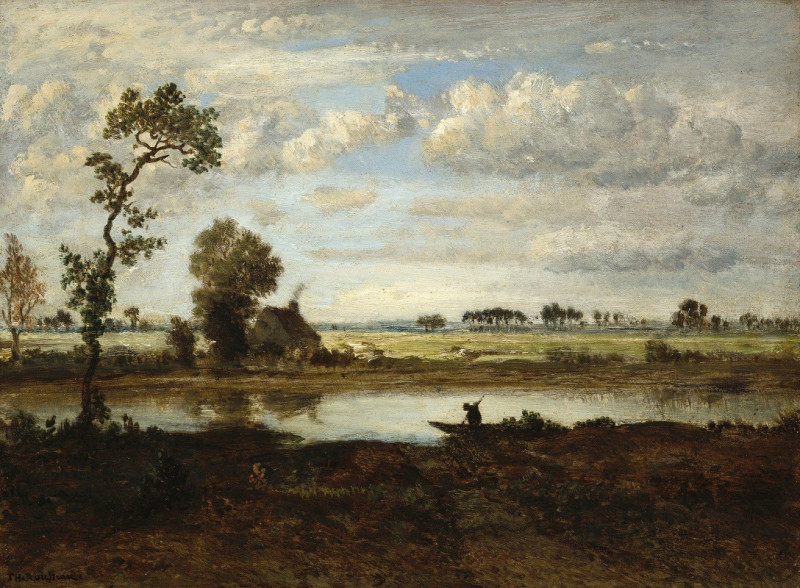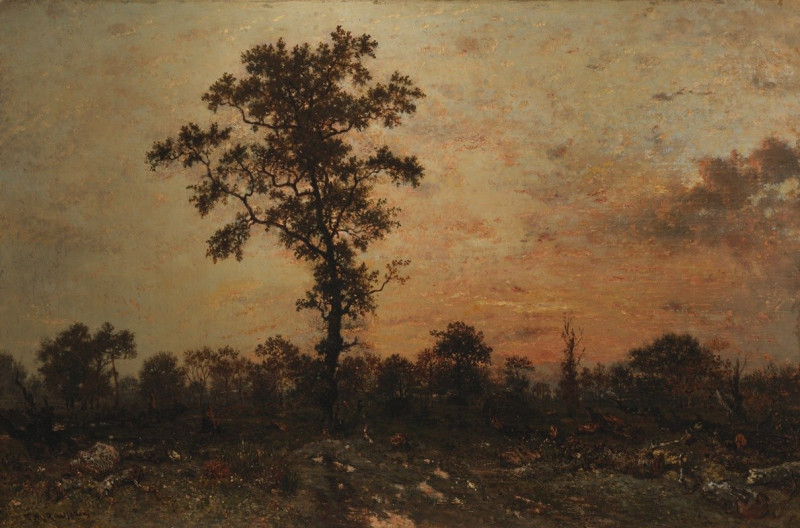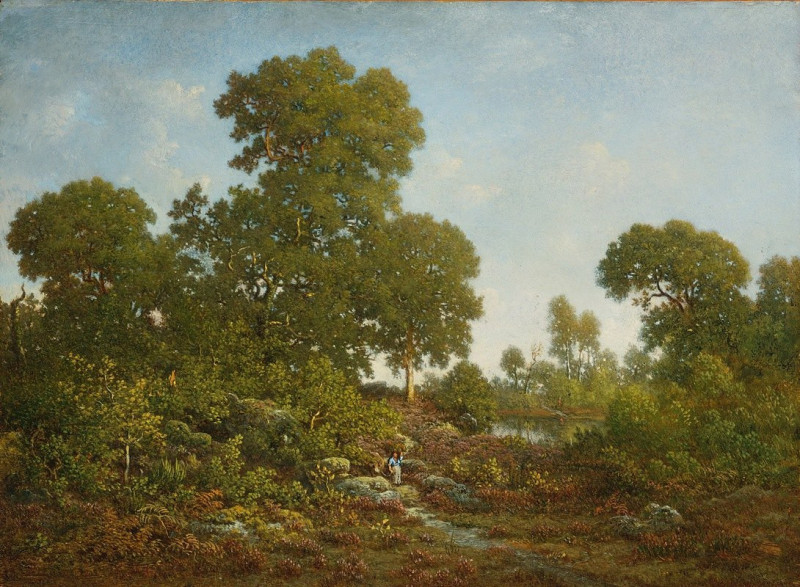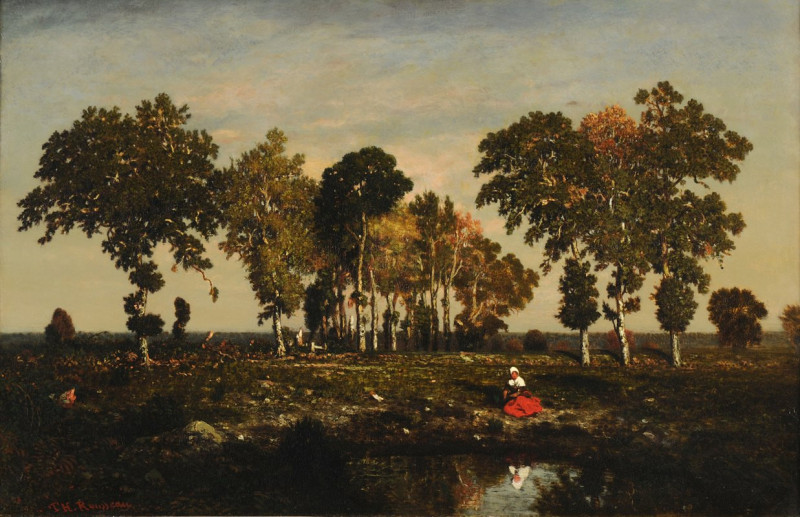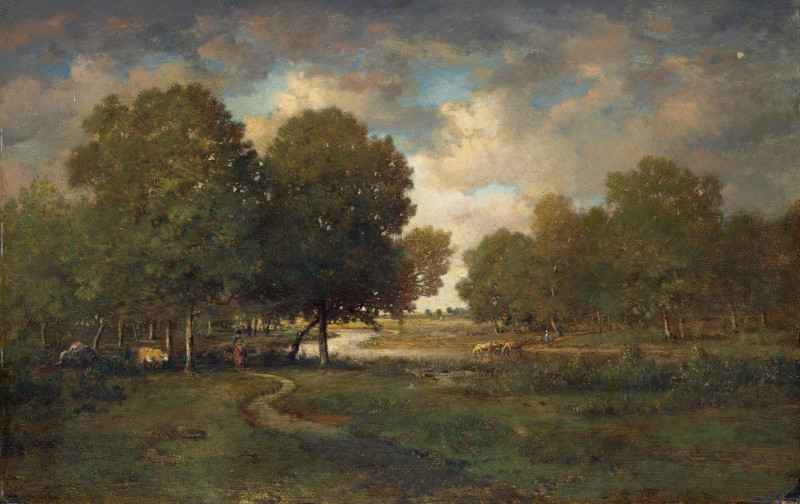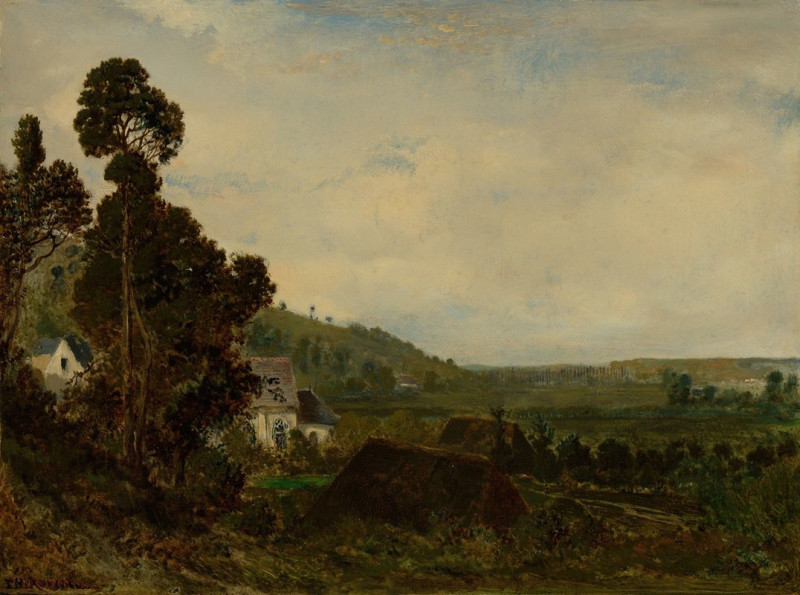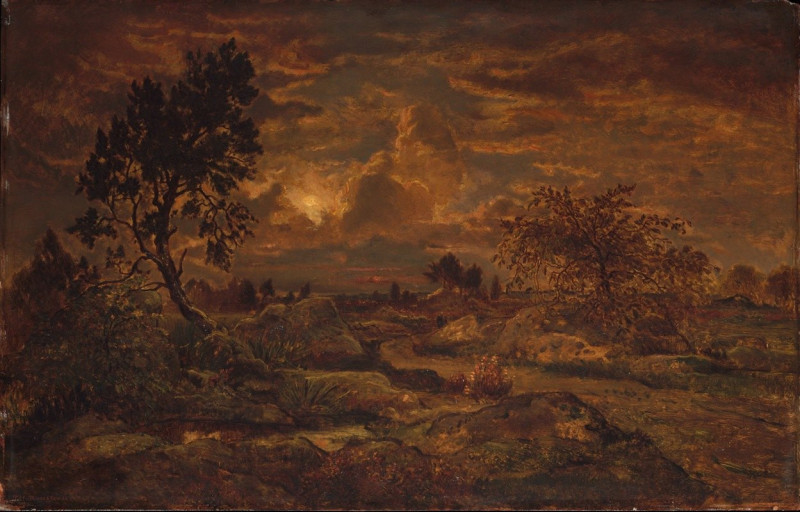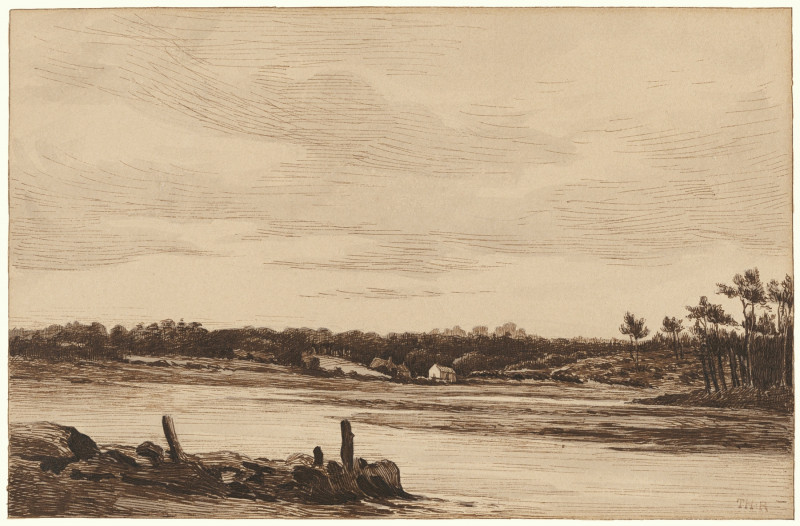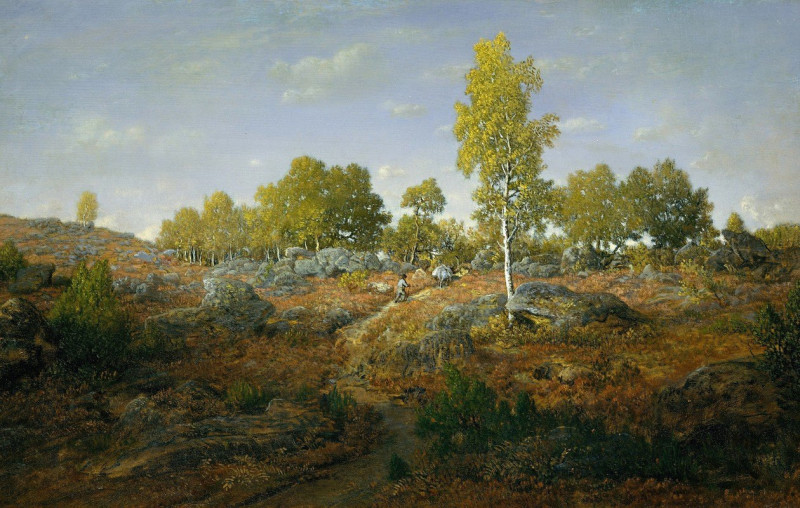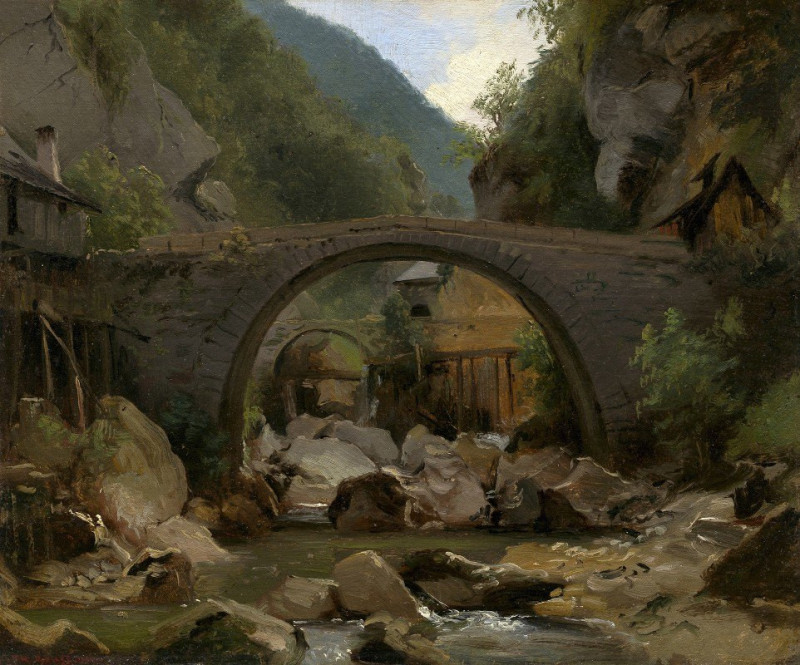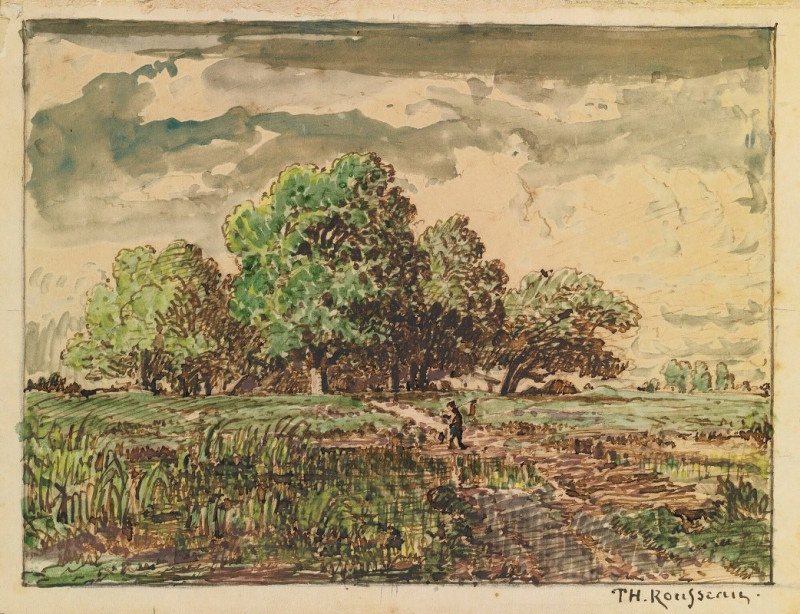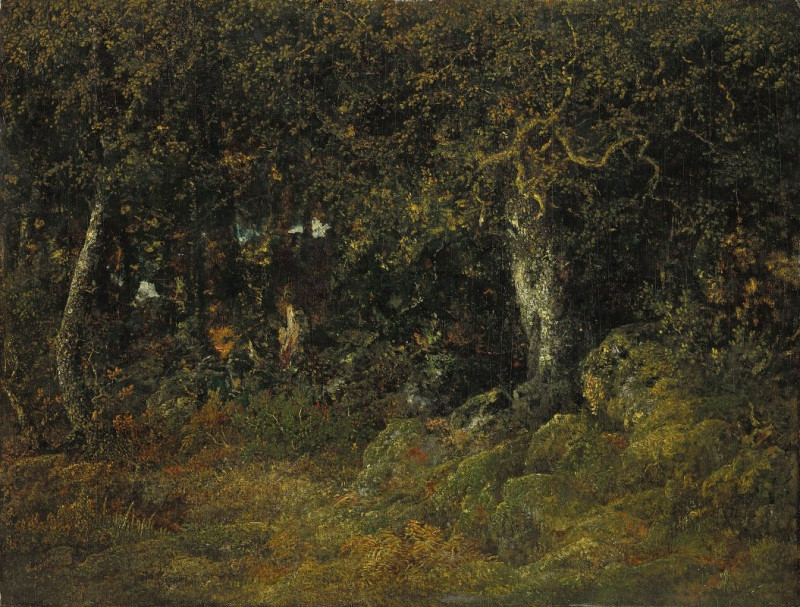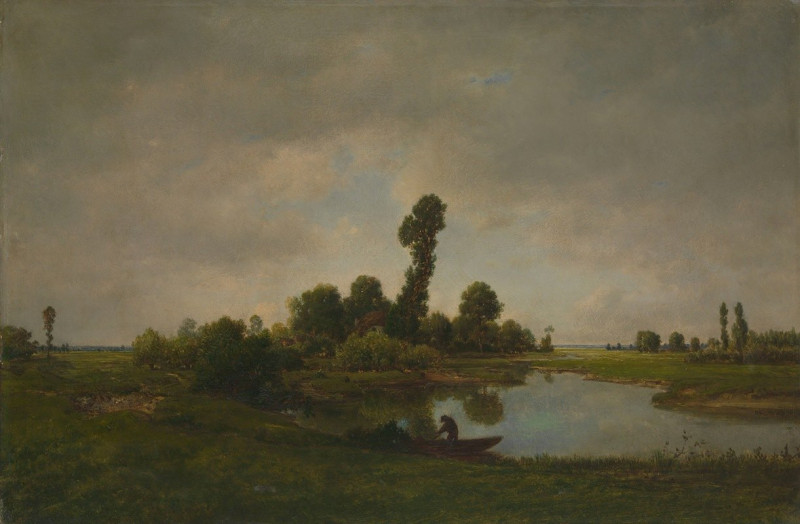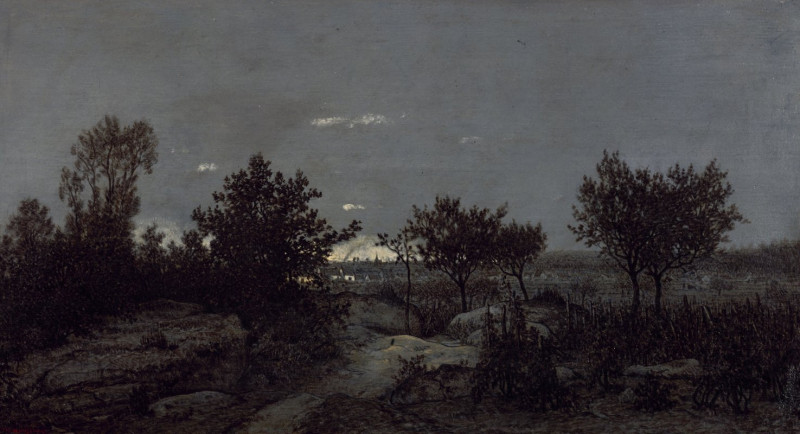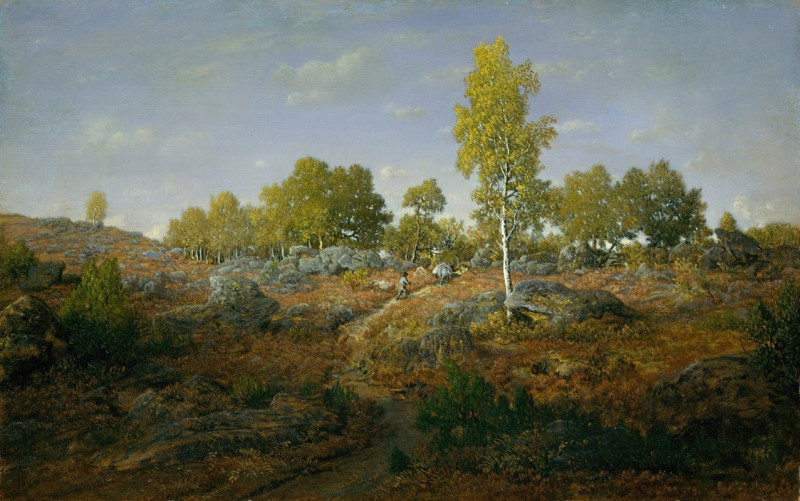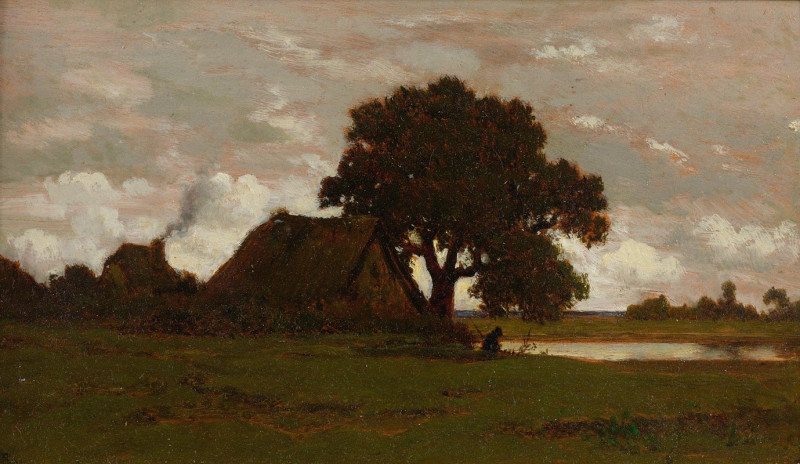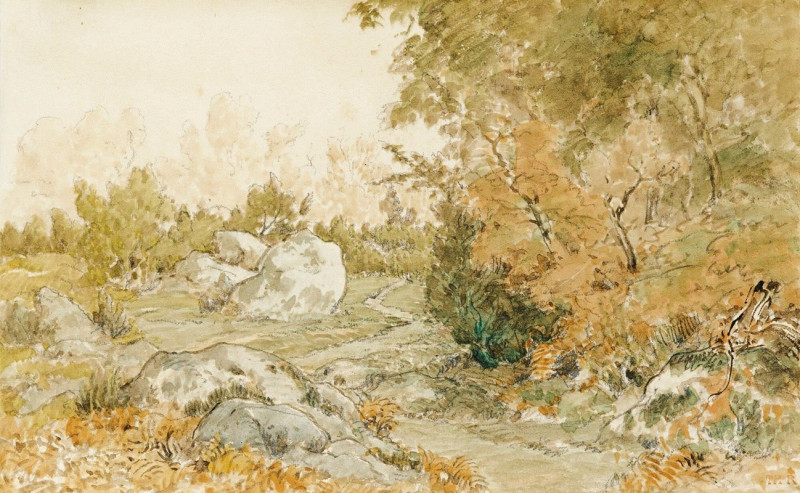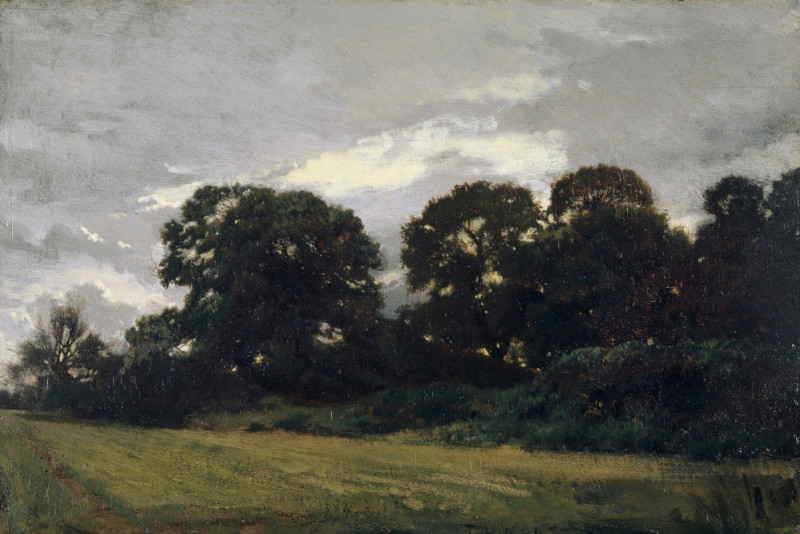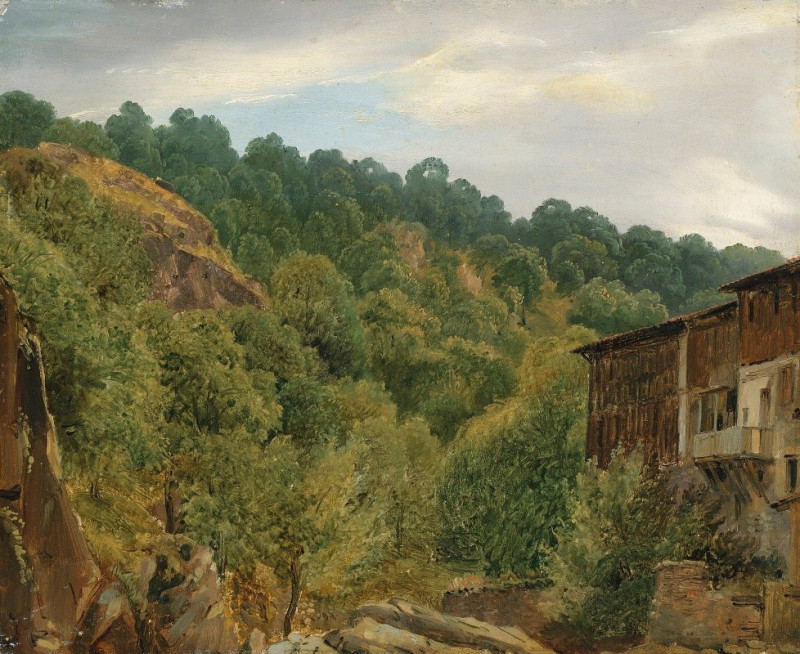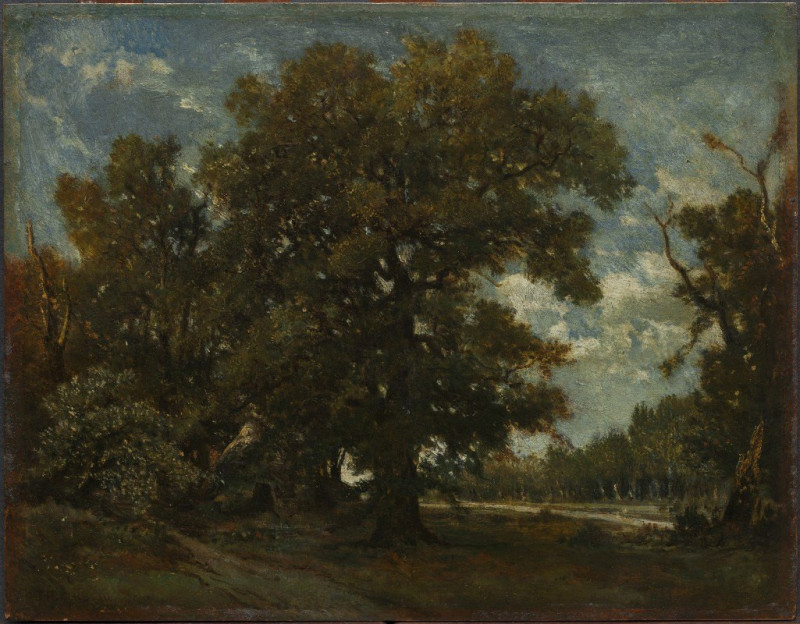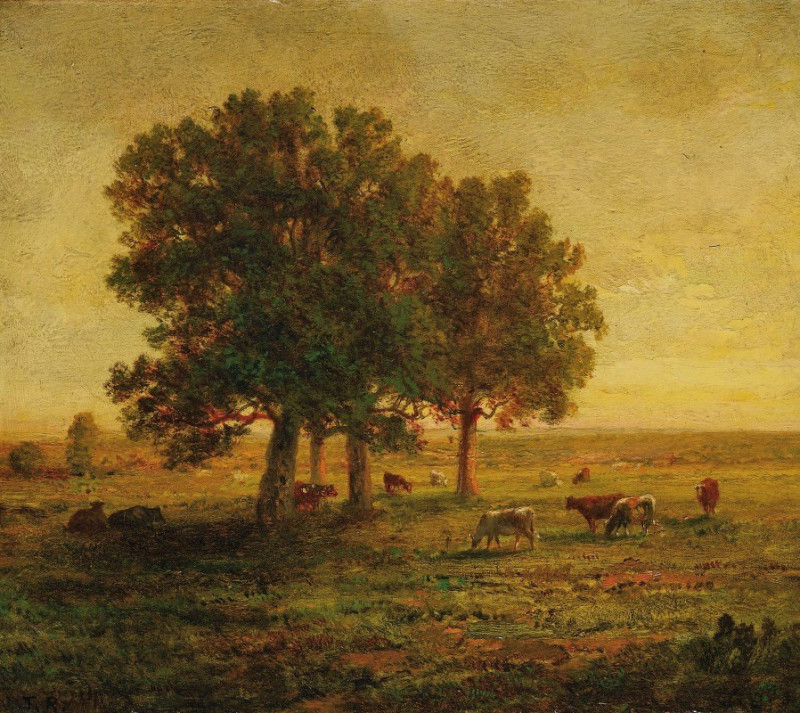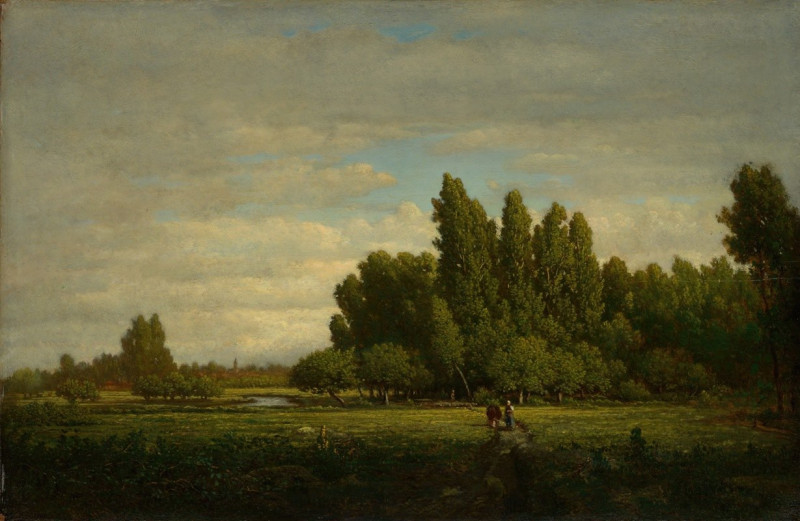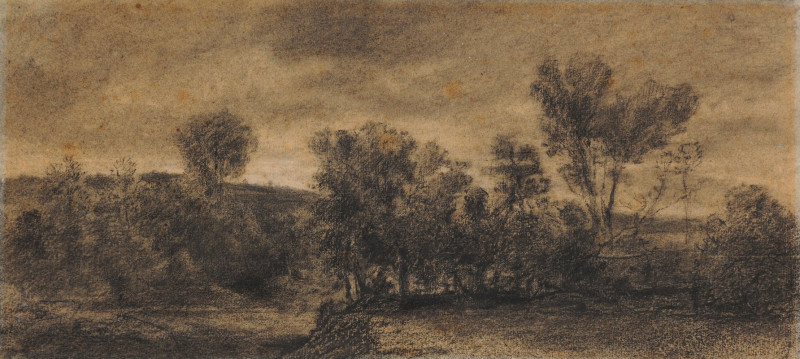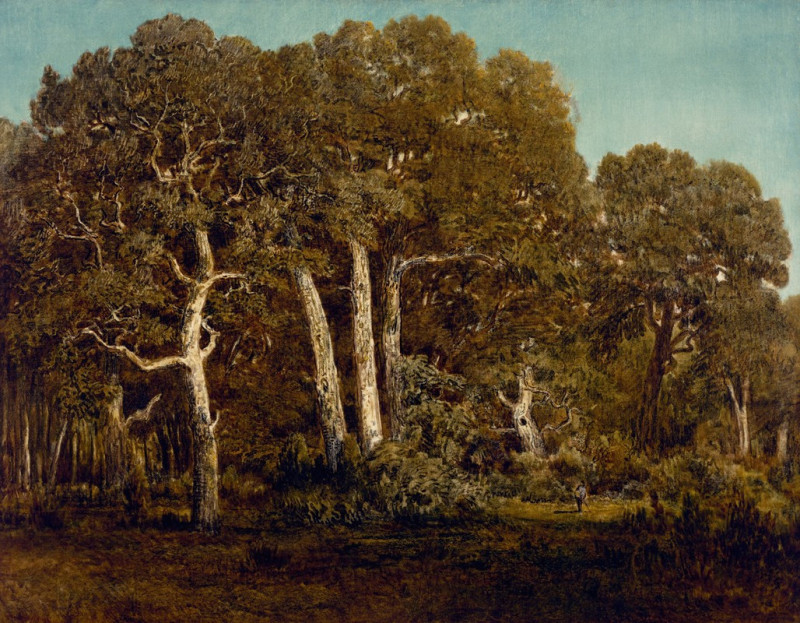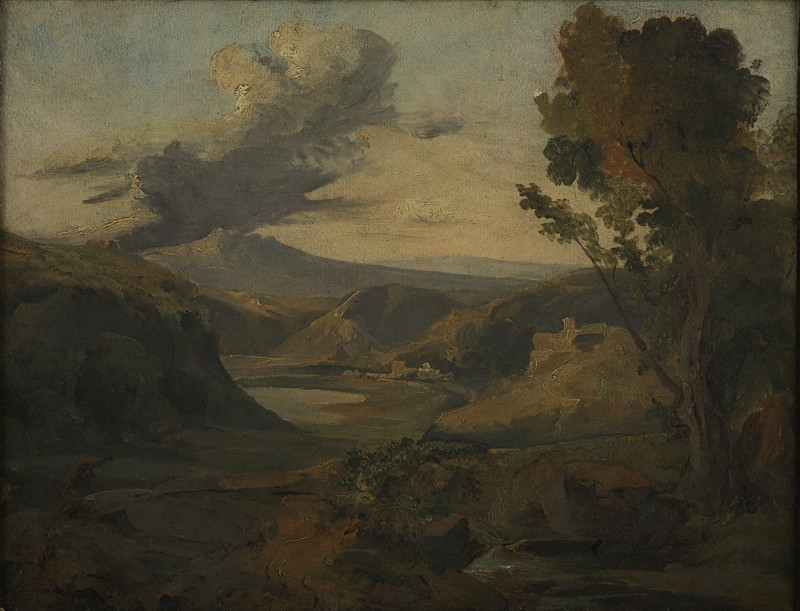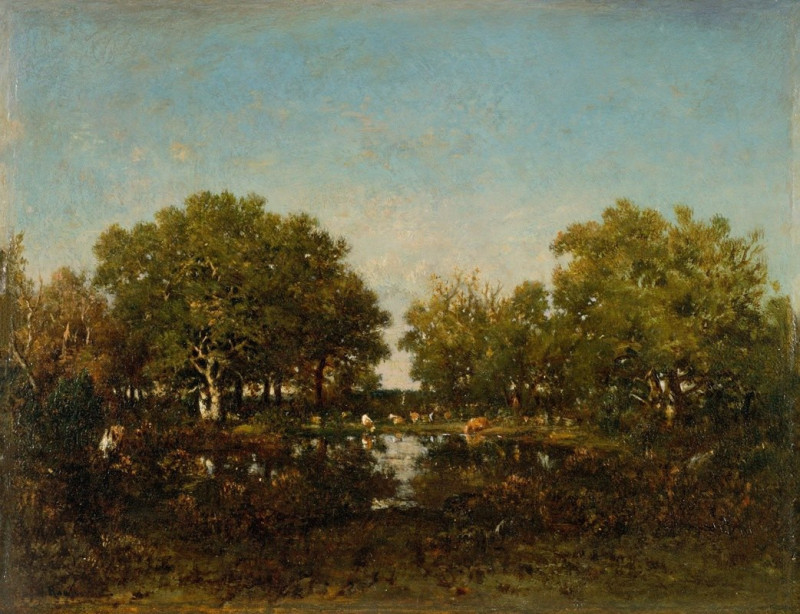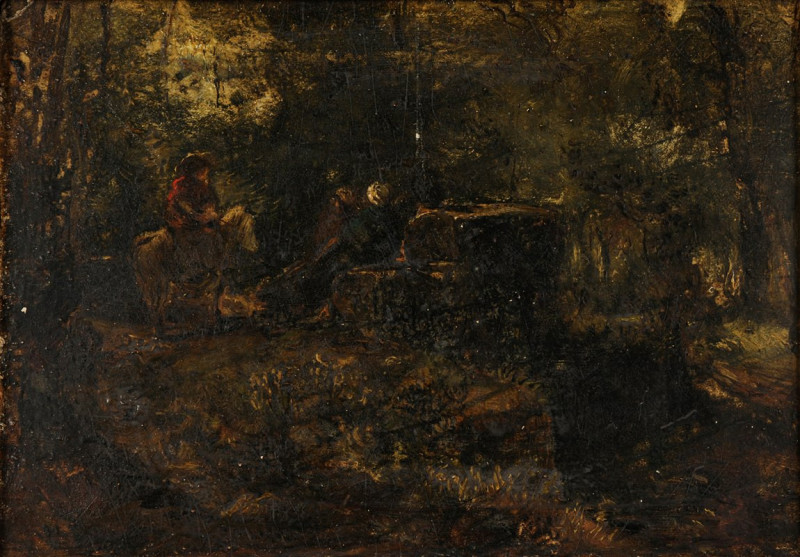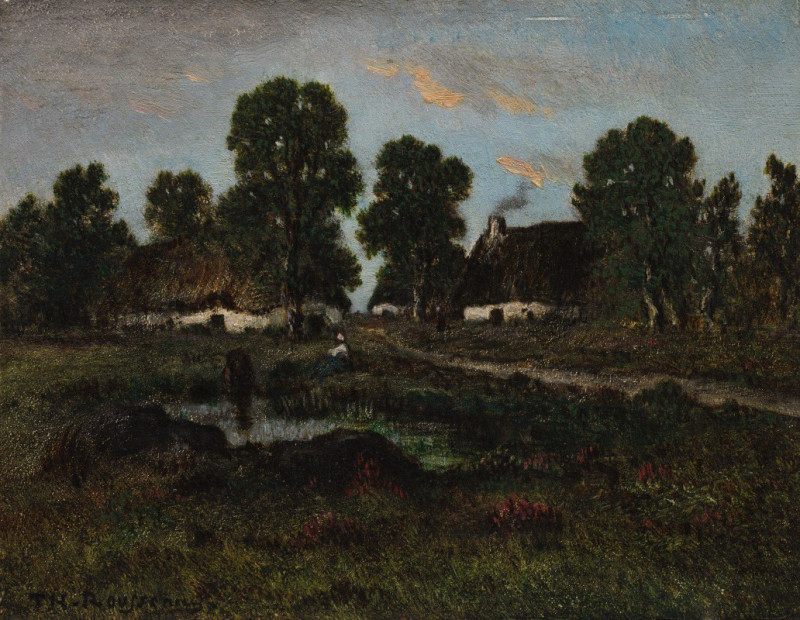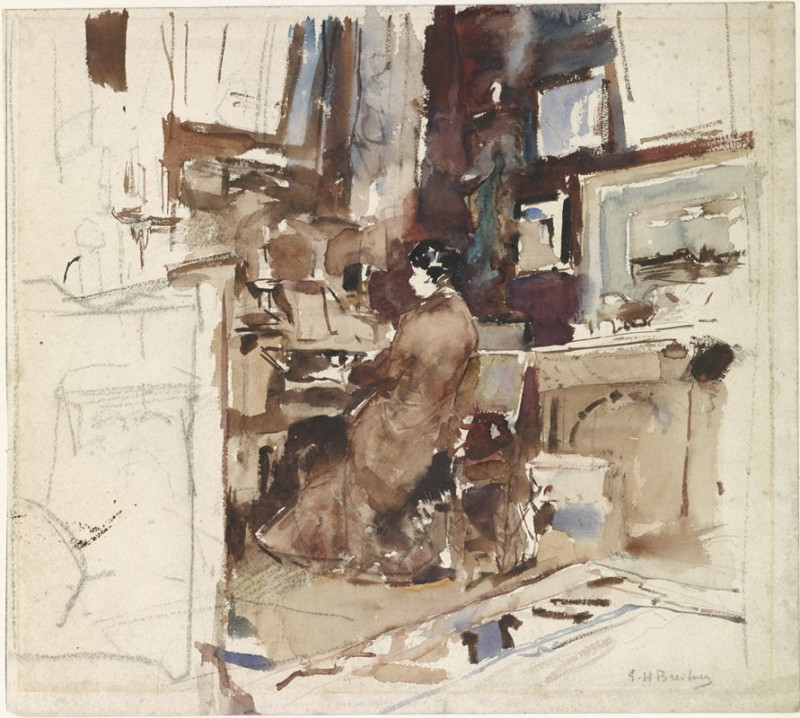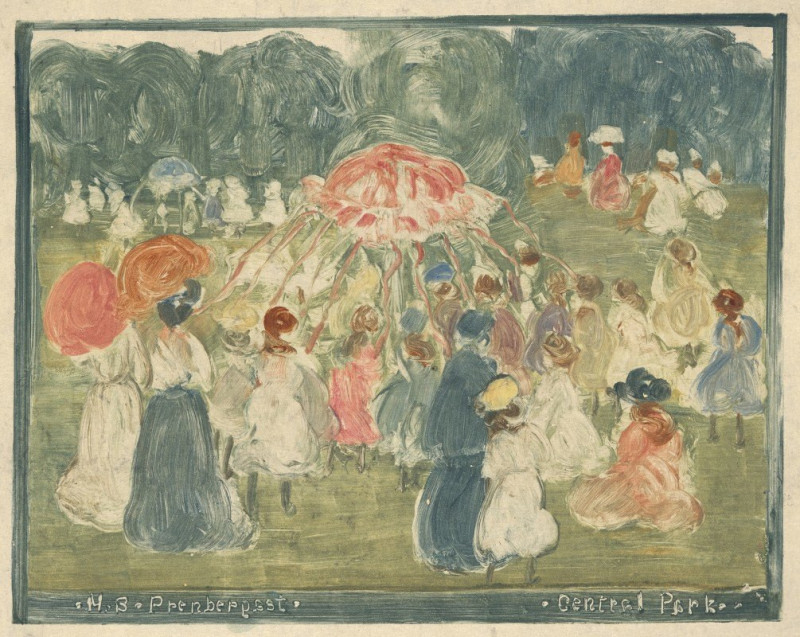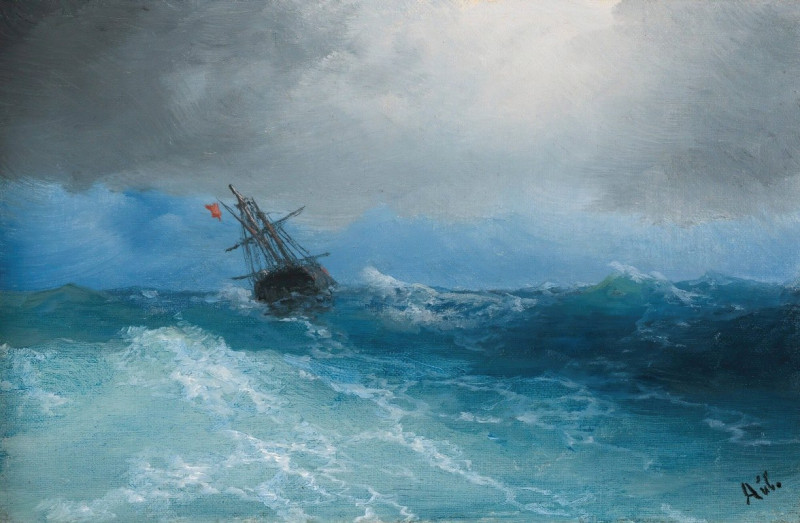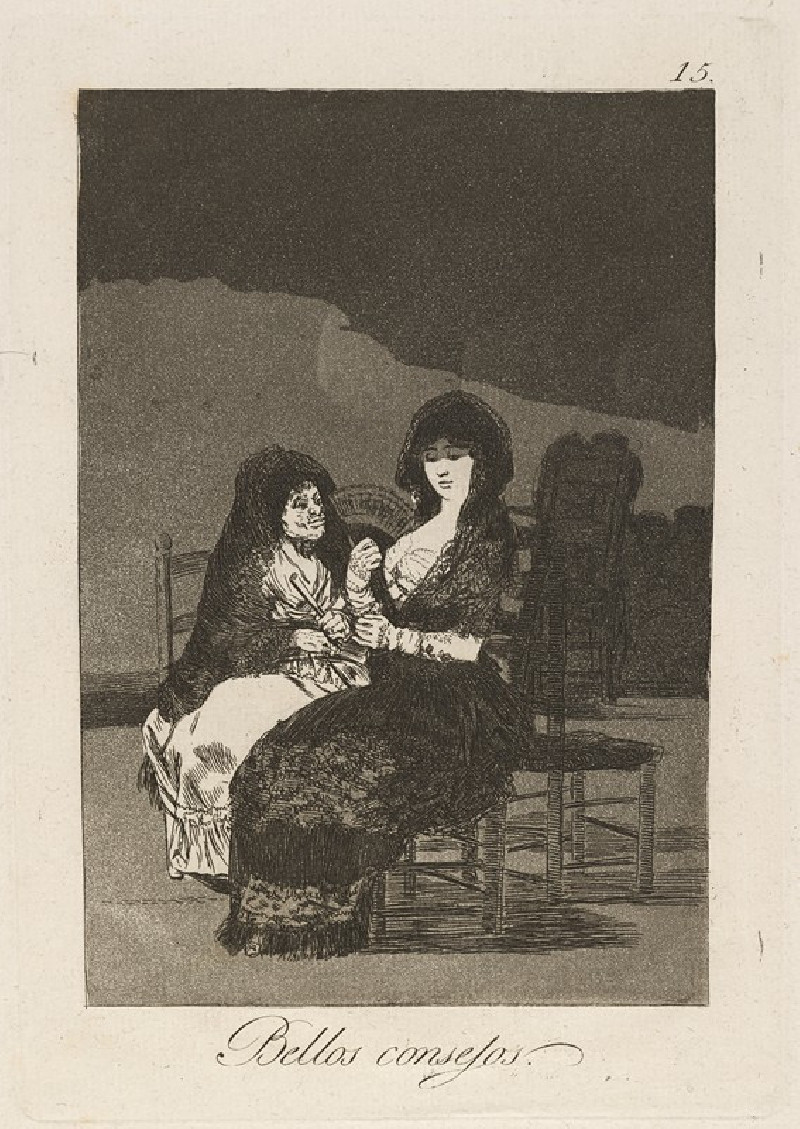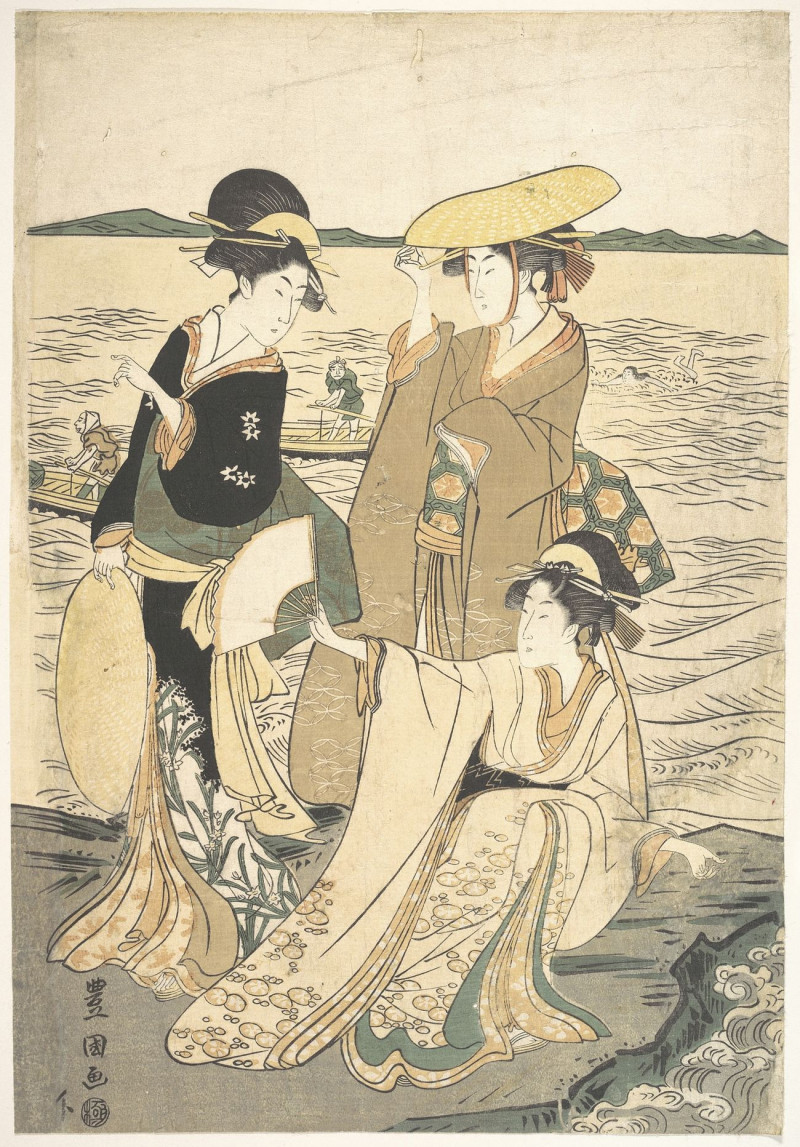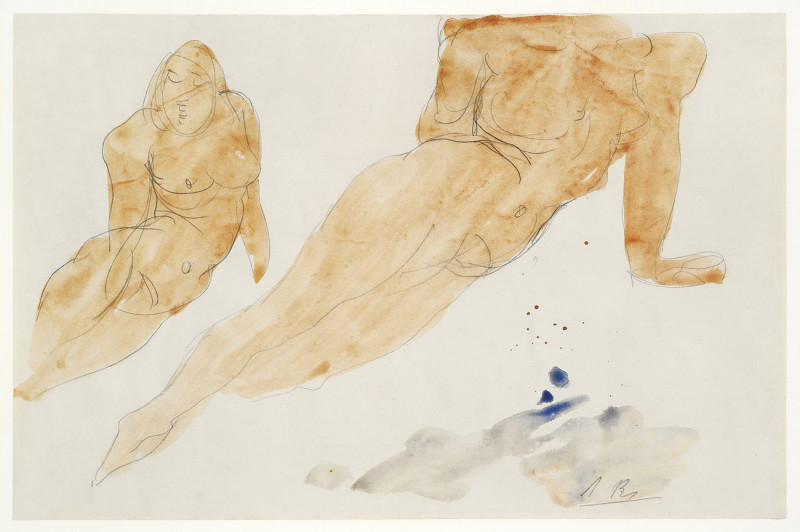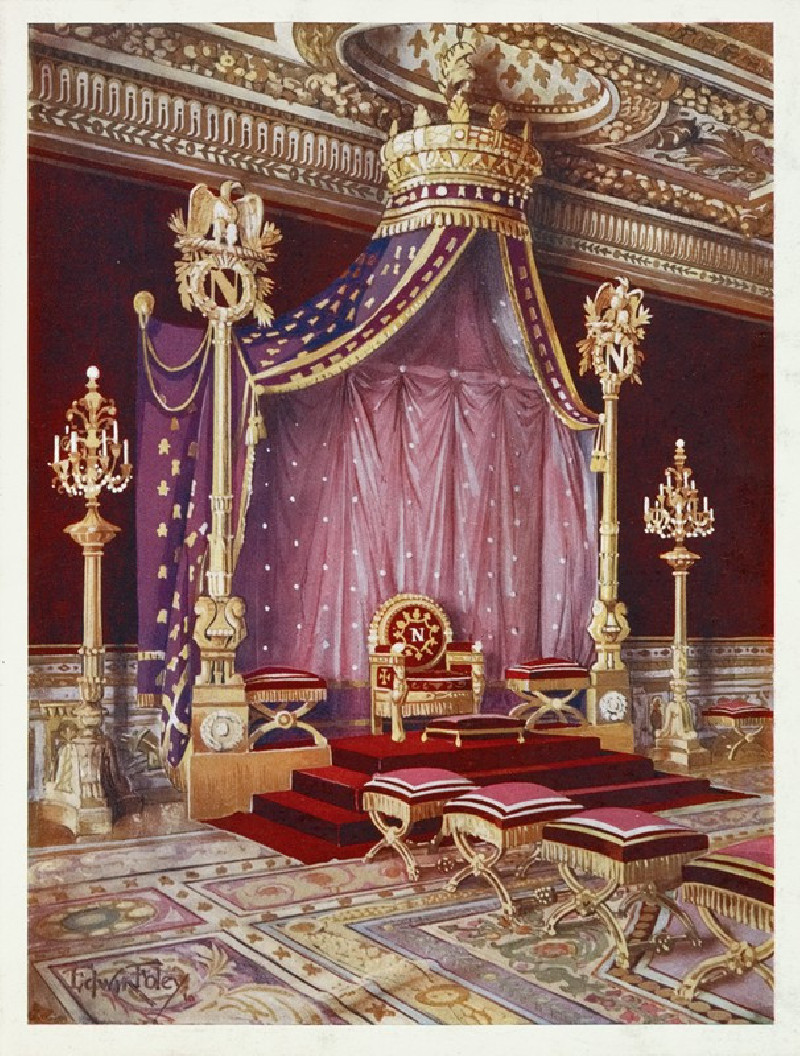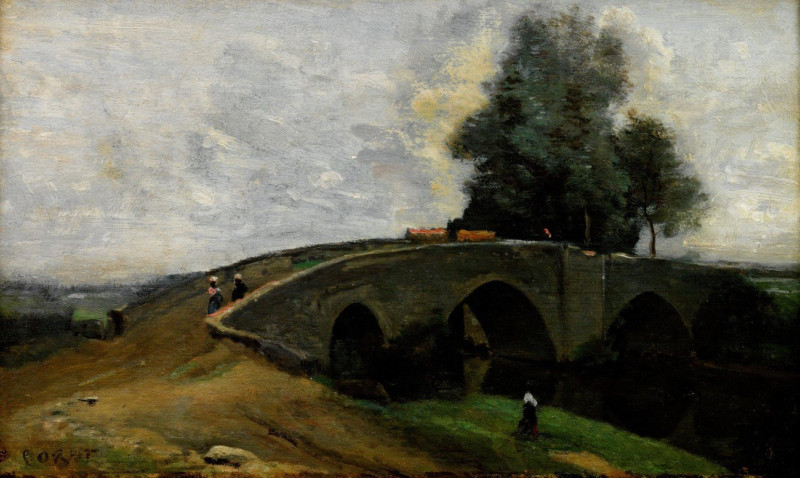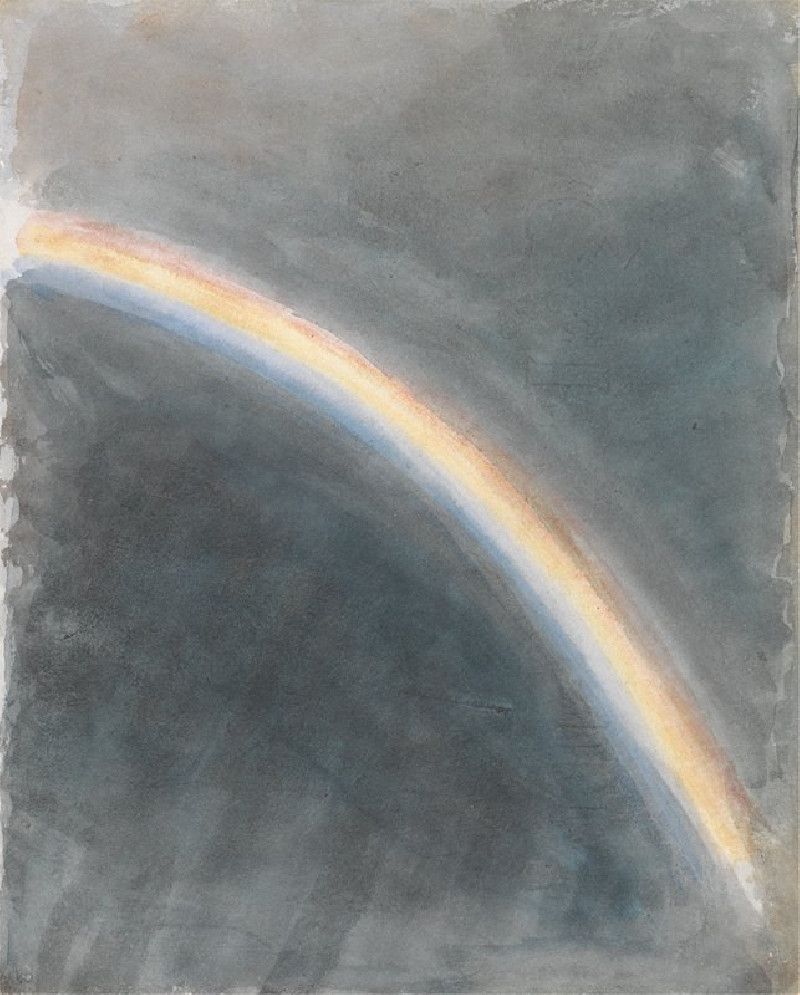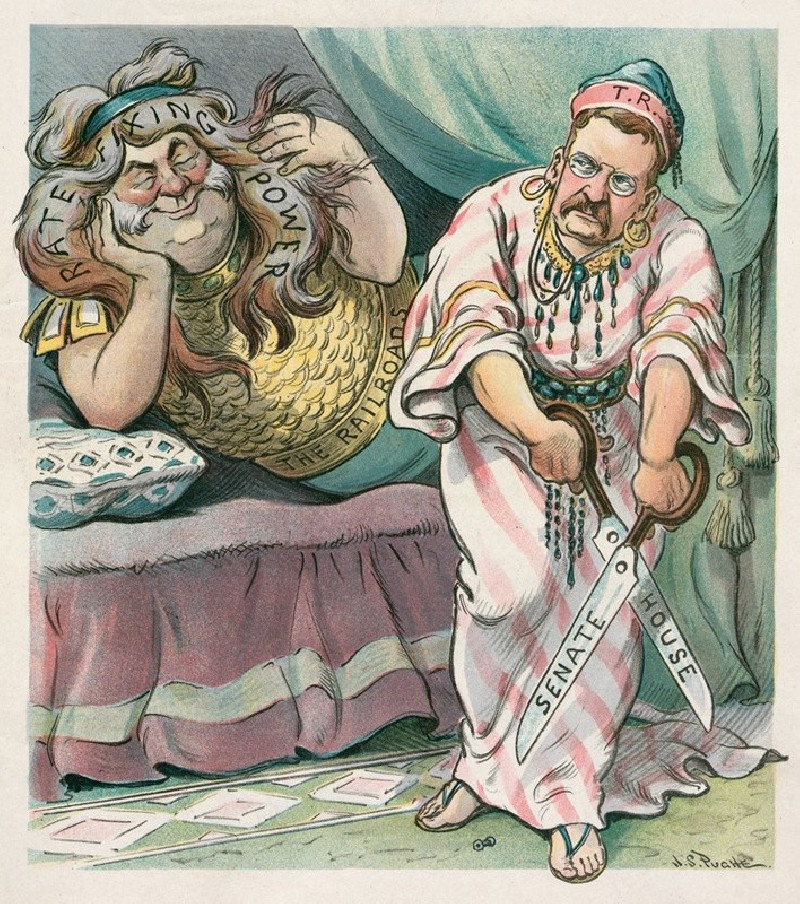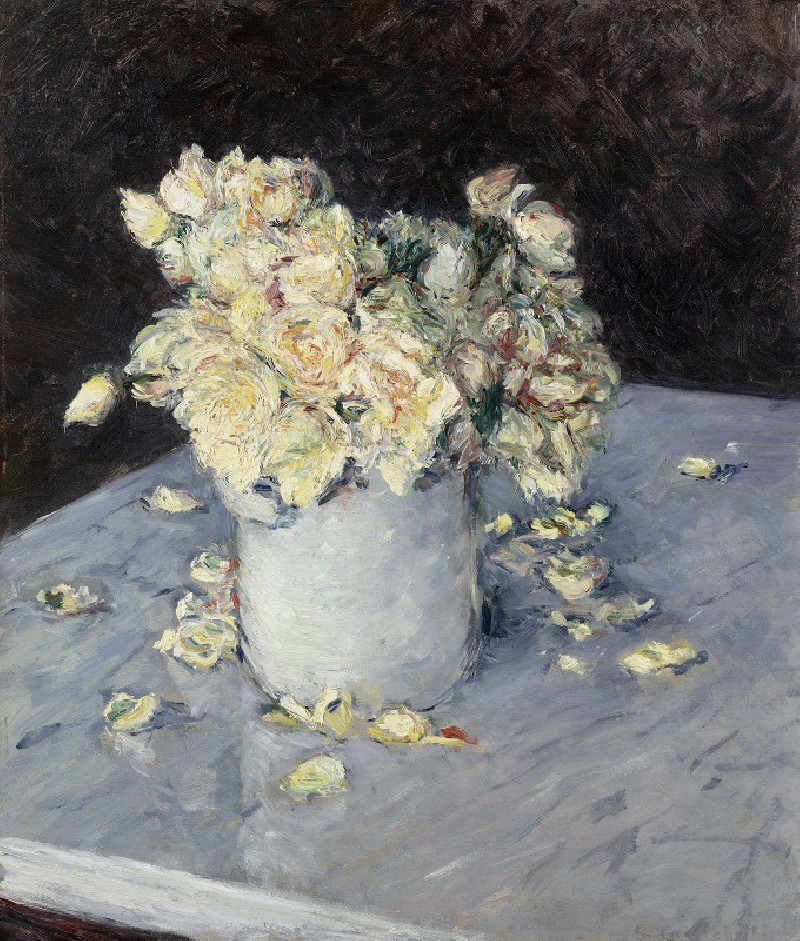Landscape with Boatman (c. 1860)
Technique: Giclée quality print
Recommended by our customers
More about this artwork
"Landscape with Boatman" (circa 1860) by Théodore Rousseau is an evocative depiction of rural tranquility, harnessing the subtle interplay of light and nature's expanse. At first glance, the viewer's eye is drawn to the central figure of a solitary boatman navigating a small vessel along a quiet river. This gentle human element offers a poignant touch to the vastness of the surrounding landscape.Rousseau's masterful handling of the landscape is evident in the detailed brushwork seen in the fluttering leaves and the textured grass, which contrast softly with the reflective surface of the water. The horizon is stretched wide, dotted with clusters of trees which balance the composition and lead the viewer’s gaze towards the expansive sky. The sky itself, a dramatic and expressive element, is rendered in sweeping clouds that echo the mood of change and the passage of time.This painting, typical of Rousseau's commitment to naturalism, captures an ordinary moment with extraordinary sensitivity, highlighting the interconnectedness of human presence within the natural world.
Delivery
Returns
Étienne Pierre Théodore Rousseau was a French painter of the Barbizon school.
He was born in Paris, France in a bourgeois family. At first he received a basic level of training, but soon displayed aptitude for painting. Although his father regretted the decision at first, he became reconciled to his son forsaking business, and throughout the artist's career (for he survived his son) was a sympathizer with him in all his conflicts with the Paris Salon authorities.

